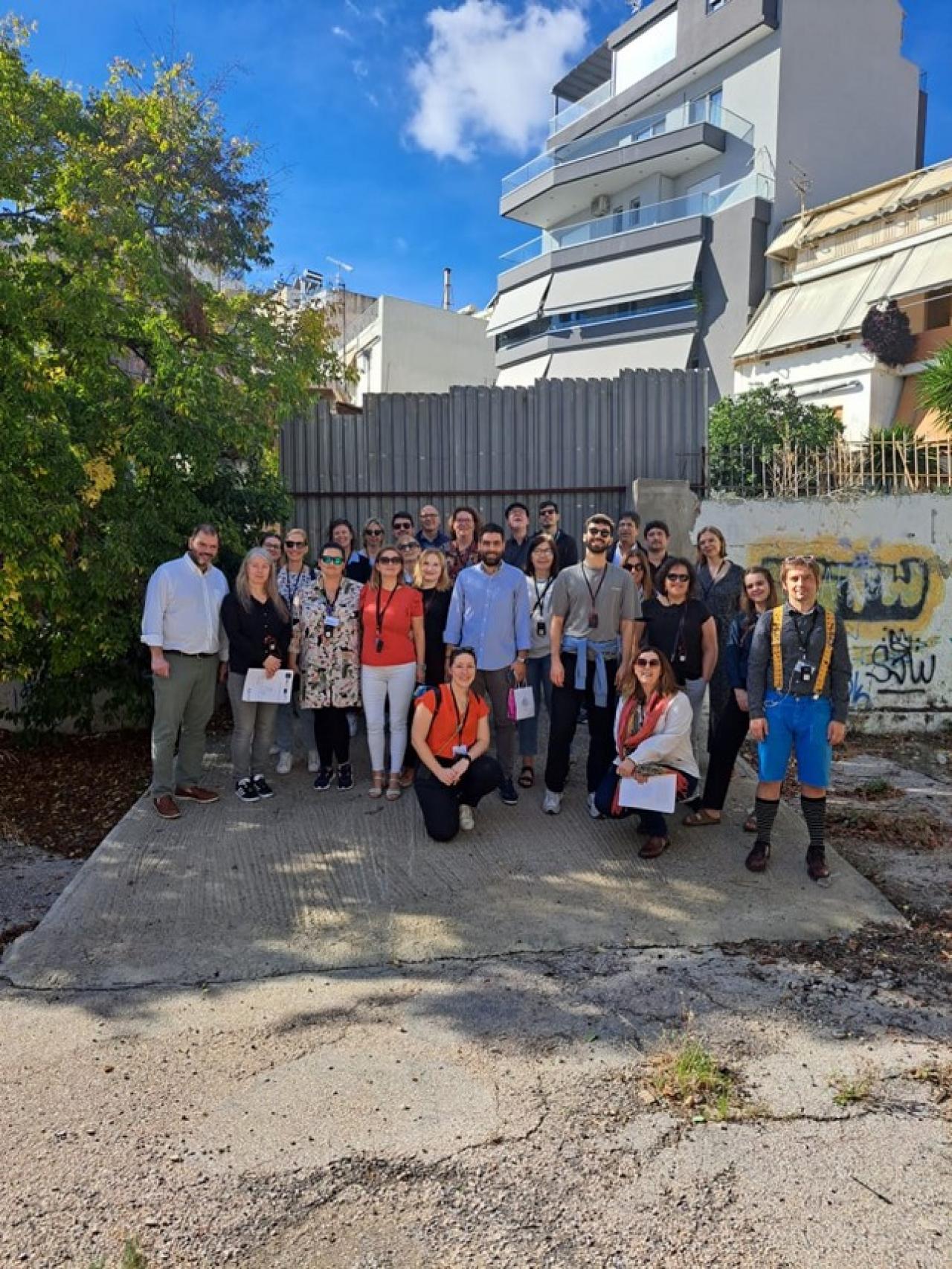Participatory effect
Lead Partner Øystein Leonardsen have a lot of experience in testing methods for citizen engagement and explains that “in the city planning COPE seek to strengthen the empowerment of the citizens and their individual ownership through engaging and co-creative methods”.
The COPE project seeks to push three levels of change: the structural, the individual and the societal. We do not only need to make the structural changes through policymaking and governance in a traditional top-down process. We have tried, but our societal challenges are getting more and more complicated and the traditional processes of finding solutions falls short. If we do not develop new methods going from looking at our challenges as something technical easy to fix with a simple technological solution, to looking at our challenges as so-called wicked problems with no clear single answer the risk is that we evoke opposition and conflict in the society.
We cannot let the individual change stand alone either relying on a bottom-up transition. This can be overwhelming and create anxiety at individual level.
In the process of policy making we need to create People's acceptance of inconvenience or cost and link this to their understanding of the importance and share the experience of ownership. We as human beings care more about the decisions and things we have contributed to or created ourselves. We call this the participatory effect. Read more about the participatory effect in relation to bottom-up collective citizen climate action on page 49 in “Omstilling på Vippen: Hvidbog om forbrug, adfærd og folkelig deltagelse i grøn omstilling” by DeltagerDanmark here (in Danish). It can be fuelled not only through information, but also through conversations, involvement, and co-ownership. We also use the term social tipping point when talking about this societal level, where the change is becoming a norm that people start to follow. In our COPE city Vilnius a bright example of the co-ownership transforming a local area into a vibrant and inspiring green area is the old hospital ground that through citizen engagement started with making urban gardening evolving into creating a place for gatherings, eating and experimenting with a green lifestyle and is now functioning as a solid local community creating new ideas and initiatives.
In COPE we aim to find methods for working towards positive social tipping points in favour of the just green transition where as many as possible feel included or represented in the decisions and solutions. Just as we aim to avoid negative social tipping points like we saw with the yellow wests in France for example.
Building capacity – we learn from each other.
Our city network COPE consists of A Coruña (ES), Bistrita (RO), Copenhagen (DK), Kavala (EL), Korydallos (EL), Pombal (PT), Saint Quentin (FR) and Vilnius (LT). Our cities are very different on all levels; political, cultural, and societal. We have quite diverse narratives about the interaction between our political institutions and the citizens. But all cities are very eager to work together and learn from each other sharing knowledge and experiences.
In each partner city a group of local stakeholders and citizens have been put together in a so called Local URBACT Group with the local municipality functioning in a new role as facilitator. And particularly this role as facilitator in the local groups is something that COPE aim to mirror in the bigger picture on local level. Through participatory and deliberative processes, we seek to explore the interface between the citizens participation and the governance structures and culture. How do we as a municipality co-create with our local citizens? How do we make certain that we do not invite into processes that have no mandate, no power, and no real influence?
Sustainable urban development – going very local
As you see we have many questions, that we aim to find answers to during the project. Our approach for this ambitious goal is to zoom in on a local neighbourhood in the city. Through this place-based focus we will engage the local community; the citizens, the institutions and the industries and explore what is at stake in this neighbourhood. What hopes and ambitions do they have for their neighbourhood and how do they see themselves and their neighbourhood in the shift towards a more sustainable lifestyle? Do they agree on the needed actions? Do they need to agree, and can they reach a common understanding? How can they work on fulfilling their ambitions? What can be done today with local resources and what do the municipality need to plan and find funding for?
Change of mindset - Knowledge to action
No real change come from above alone. The changes we confront are so enormous, that we as individuals easily get caught in despair, hopelessness or anger and frustration and that we as governance institutions may give up and just follow the short-term populistic perspective.
The next two years of 2024 and 2025 each COPE city will work on both local and network level to find and experiment with methods for working towards positive social tipping points in favour of the just green transition. Seeking to push for a shift in mindset, not only within political institutions and the governance and planning processes of our cities. But also, through acknowledging the local knowledge, hopes and ambitions of the citizens and local interests evoking trust and engagement. This, we believe, will foster sustainable change within our society – no more no less 😊
Please follow our work and let us know if you find the Philosopher's Stone. We would love to engage and share!


